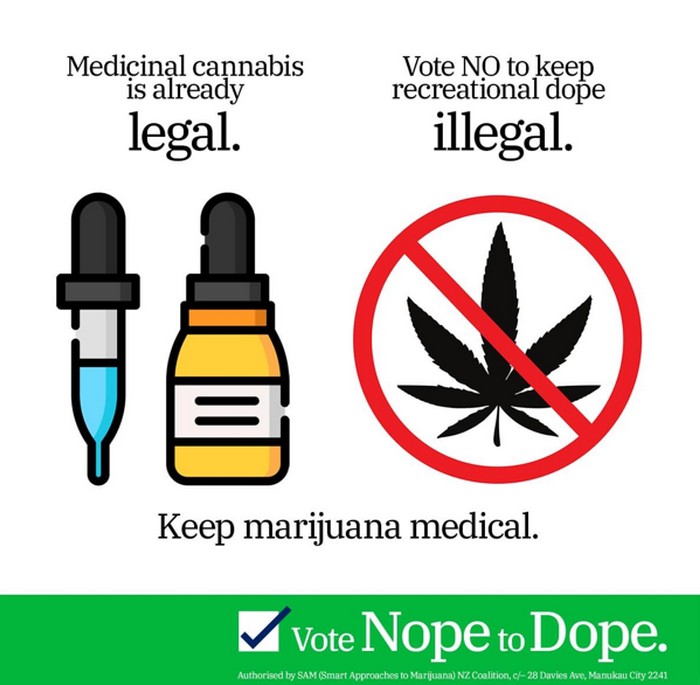Why medicinal cannabis suffered after the October cannabis referendum
 The SpinOff 7 December 2020
The SpinOff 7 December 2020
Family First Comment: “There was a lot of confusion, a lot of people not understanding that medicinal cannabis is already legal, that there is framework here & some people who felt that business like ours actually depended on ‘yes’ vote”
Yep – blame the Drug Foundation and Chloe.
We tried to warn New Zealand voters.
In the aftermath of the cannabis referendum on October 17, stocks for the two NZX-listed medicinal cannabis companies both sold down. While the referendum concerned the recreational, not medicinal use of cannabis, medicinal cannabis companies say there may have been some confusion about the actual impact of the referendum on the medicinal market.
In September, one of those listed companies, Cannasouth, reached its all-time high on the NZX, trading shares for $1.21 each. After the election on October 17, prices declined, reaching a low of $0.54 one month later, after the cannabis referendum results were announced.
Mark Lucas, CEO of Cannasouth, says while it’s not possible to explain exactly why stocks drop when they do – it can be for a range of reasons – there is an argument that the eventual “no” vote did affect the way some investors perceived the brand’s growth potential.
“Some people may have made the assumption that a medicinal cannabis company would be in a good position if there was an adult use market. That’s not something as a company that we have articulated.”
Lucas says despite Cannasouth’s medicinal focus, there was a lot of confusion around what a “yes” vote would mean for the medicinal cannabis sector, which may have caused further confusion when the “no” vote became clear.
“[There was] a lot of confusion, a lot of people not understanding that medicinal cannabis is already legal, that there is a framework here and some people who felt that a business like ours actually depended on a ‘yes’ vote.”
The medicinal cannabis scheme, which came into effect on April 1, 2020, was put in place to improve access to quality medicinal cannabis products as medicine. Under the scheme, cannabis is only available under a prescription from a doctor and licenses need to be obtained for companies wanting to produce medicinal cannabis product – the Ministry of Health states this scheme is entirely separate from October’s cannabis referendum.
The cannabis referendum however sought to legalise recreational cannabis and allow designated dispensaries from which anyone over the age of 20 could purchase up to 14g of cannabis product per day. So why did investors get so confused?
READ MORE: https://thespinoff.co.nz/money/07-12-2020/why-medicinal-cannabis-suffered-after-the-october-cannabis-referendum/#.X82Z1XsJlnk.twitter






